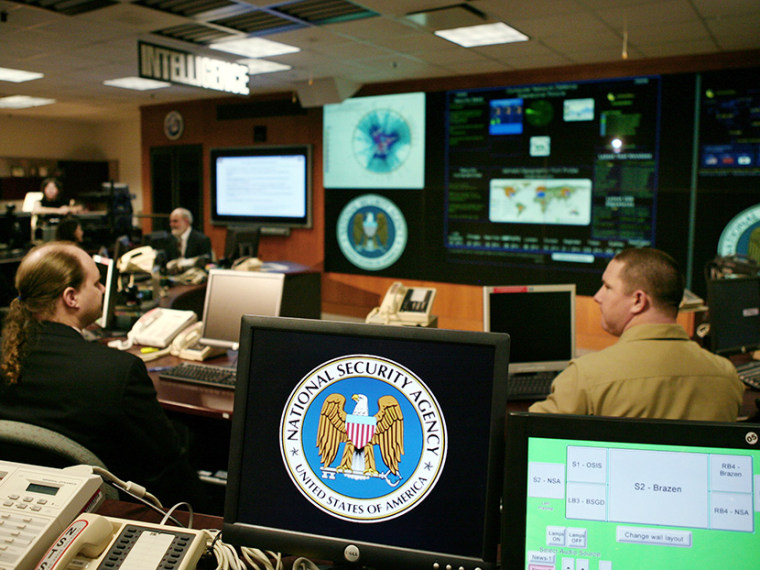About a month ago, the House acted with broad, bipartisan support to approve NSA surveillance reforms, though privacy advocates and civil libertarians were immediately disappointed. As Adam Serwer
explained at the time, lawmakers took a watered-down bill, intended to stop bulk data collections, and diluted it further. The resulting bill didn't do much.
In a bit of a surprise, House lawmakers returned to the issue last night, and this time, they
went much further than they were willing to go in mid-May.
A proposal to block intelligence agencies from conducting warrantless and "backdoor" searches of U.S. communications passed in the House late Thursday night. Adopted 293-123, with one member voting present, the amendment to the 2015 Defense appropriations bill would prohibit the search of government databases for information on U.S. citizens without a warrant. It would further cut off funding for the CIA and National Security Agency to build security vulnerabilities, or "backdoors," into domestic tech products or services for surveillance purposes. Rep. Dan Lipinski (D-Ill.) was the only member to vote present. Rep. Thomas Massie (R-Ky.), the chief sponsor of the bipartisan amendment, said it would limit the controversial NSA spying.
And in all likelihood, Massie's correct. Timothy B. Lee
added, "By itself, the amendment falls short of the kind of sweeping NSA reforms some civil liberties groups support. But the vote represents the first time a house of Congress has voted to curtail the controversial practices revealed by Ed Snowden last year."
Before getting into the legislative prospects, let's clarify what "backdoor" searches are all about.
In theory, the NSA is not supposed to spy on Americans without a warrant. However, if they claim that they're really spying on a foreigner who just happens to be talking to an American, they can collect both sides of the conversation and put all the information in one of their giant databases. And once the American information is in their database, they can search for it because, technically, they're not collecting anything they aren't allowed to. They're just searching for stuff they've already "inadvertently" collected. To you and me, this is laughable sophistry. To the NSA, it's just another day at the office. [Thursday], however, the House voted to end these "backdoor" searches.
The
roll call on last night's vote was pretty interesting, at least insofar as its partisan breakdown. On a typical bill dealing with a controversial issue, we'd expect to see most Republicans on one side and most Democrats on the other, but in this case, we saw majorities in both parties support the measure, though proportionally, it enjoyed stronger Democratic support, despite having a GOP chief sponsor.
Looking ahead, the NSA limits are an amendment to a larger spending bill, which itself still has to pass the lower chamber. It'll then go to the Senate, which will likely have
its own ideas about surveillance reforms, before going to the White House, which has not yet commented on its comfort level with the NSA restrictions.
Still, in the context of the larger debate, for those involved in the debate, last night's vote was unusual: bipartisan majorities in the House went further than they have before in limiting the NSA's powers. It's a big step forward.
